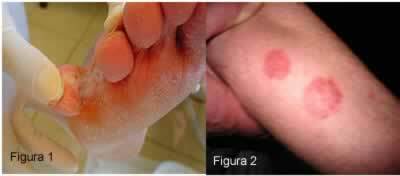O foot test, or neonatal screening, is a test performed in the baby's first days of life with the purpose of detecting some diseases. All babies must undergo the exam. The test should be performed on newborn children aged 3 to 5 days old, and it is preferable that it be performed on the 3rd day. In premature babies, the collection of material should be done at the end of the first week and repeated after 1 month.
It is important to carry out the exam in the first few days, as the diseases diagnosed through it can cause problems in the child's development. Therefore, it is important that the diagnosis is quick so that treatment can start as soon as possible.
The exam consists of collecting blood from the heel region, a highly vascularized region. The drop of blood is placed on a filter paper and this paper then goes on to laboratory analysis. The method is simple and does not pose a risk to the baby. It is noteworthy that no special care is needed at the blood collection site, it is enough that the mother keep the area clean.
O foot testcurrently detects six diseases: congenital hypothyroidism, sickle cell anemia, cystic fibrosis, phenylketonuria, biotinidase deficiency and congenital adrenal hyperplasia. However, this exam varies from region to region. In some states, the heel prick test detects two diseases; in others, three. Only the states of São Paulo, Minas Gerais, Paraná and Mato Grosso do Sul perform the heel prick test that detects the six diseases.
It is important to highlight that the heel prick test is essential in the diagnosis of these diseases, as the baby can be a carrier and not have any symptoms. The diseases mentioned have no cure, and early treatment can prevent sequelae. Congenital hypothyroidism, for example, can cause mental retardation if there is no follow-up since the diagnosis of the disease.
Learn a little more about each of the diseases diagnosed by the heel prick test:
- congenital hypothyroidism: A disease in which the newborn produces too little thyroid hormones. This causes a reduction in metabolic processes and can lead to mental retardation.
- sickle cell anemia: Genetic disease that alters the hemoglobin molecule. It can cause pain, anemia and growth delays.
- Cystic fibrosis: A genetic disease characterized by the accumulation of mucus in the airways, causing lung problems. It can also affect the pancreas.
- Phenylketonuria: A genetic disease characterized by the absence or deficiency of an enzyme that converts phenylalanine to tyrosine. May cause mental impairment.
- Biotinidase Deficiency: A genetic disease in which the individual becomes unable to recycle or use biotin, a vitamin. The child may have seizures, muscle weakness, hair loss, and immune deficiency.
- Congenital adrenal hyperplasia: A genetic disease characterized by deficiencies in the production of adrenal steroids. This disease leads to masculinization, vomiting and dehydration.
by Vanessa dos Santos
Graduated in Biology


